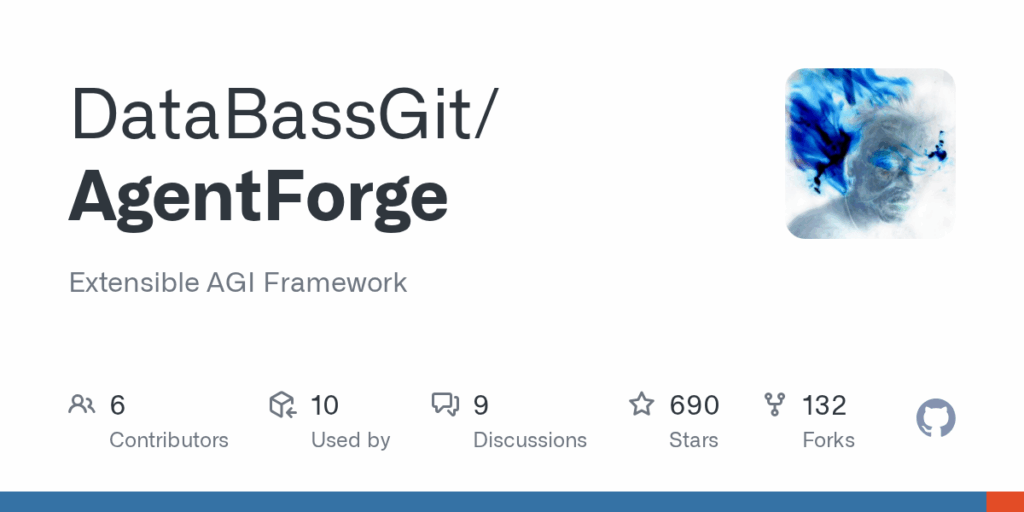AgentForge
Basic Information
AgentForge is a low-code framework for rapid development, testing, and iteration of AI-powered autonomous agents and cognitive architectures. It is built around three core concepts—Agents, declarative Cogs, and integrated Memory—so users can compose simple agents or sophisticated multi-agent workflows with minimal code. Configuration is primarily YAML-based for agents, personas, and Cogs, enabling prompt templates and branching logic to be defined declaratively. The project is model-agnostic and supports cloud LLMs and local models, and it documents storage and settings options for persistent memory. The repository includes guides, core concept documentation, and examples to help both newcomers and experienced developers build, run, and refine autonomous agents.








